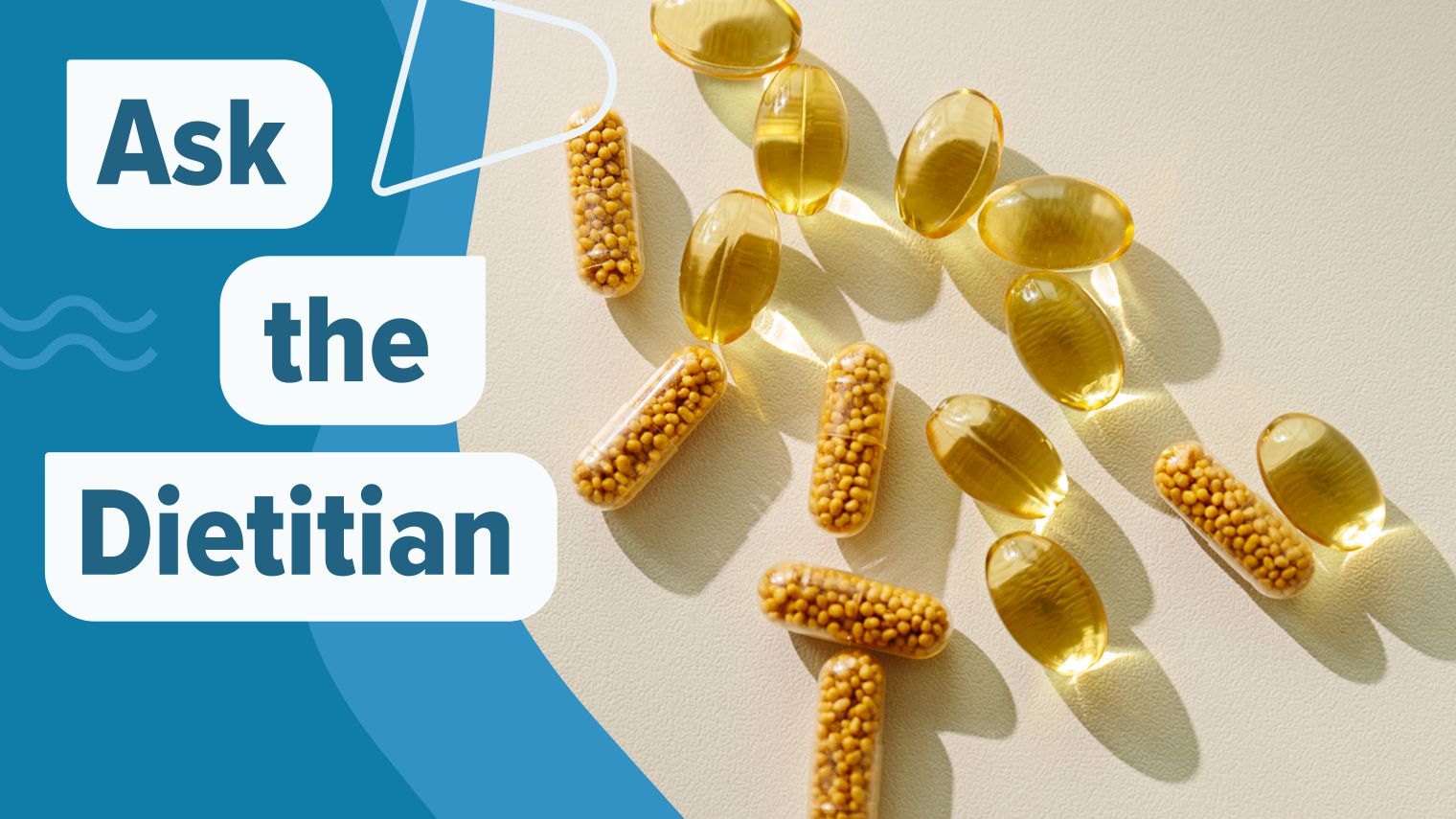Ask the Dietitian: What Supplements Are Helpful for Type 2 Diabetes?
November 01, 2023
Content created for the Bezzy community and sponsored by our partners. Learn More

If you have T2D, you’re more likely to be running low on certain nutrients, including magnesium and vitamin B12.
The best way to get vitamins and minerals is through food. That said, supplements can help boost your levels.
But the world of supplements can be confusing, and you don’t need all the supplements marketers would have you believe.
Still, you may find these supplements helpful if you have low levels of certain nutrients.


Common supplements people take for type 2 diabetes
If you do have a deficiency, taking a supplement can be helpful. Some supplements may also help lower your blood sugar and decrease inflammation.
Here are a few research-backed supplements that may be helpful if you’re living with T2D.
Make sure to talk with your doctor before starting any new supplement.
Magnesium
This multitasking mineral helps you break down carbohydrates, secrete insulin, and regulate blood pressure.
You’re more likely to have a magnesium deficiency if you take common diabetes medications, like metformin and proton pump inhibitors.
A 2017 study found that people who used metformin or proton pump inhibitors had reduced magnesium levels.
Taking a magnesium supplement can help restore your levels, which may help improve your blood sugar control.
Taking magnesium supplements may also help reduce fasting blood sugar, long-term blood sugar, and blood pressure levels, suggests a 2022 study.
Vitamin D
Bringing up your vitamin D levels may help manage your blood sugar.
People with T2D often have a vitamin D deficiency, which has been linked with insulin resistance and inflammation.
The good news is taking vitamin D supplements may help improve blood sugar control and insulin sensitivity in people living with T2D.
If you’re wondering whether you’re low in vitamin D, you can ask your doctor to test your levels and recommend supplements if you need them.
Folate and vitamin B12 (B-complex vitamins)
We grouped these because folate and vitamin B12 are both B-complex vitamins, and you can take them together in one B-complex supplement.
If you’re living with T2D, you’re more likely to have low levels of both.
Taking a folate supplement may help improve blood sugar control in those with T2D.
And taking a vitamin B12 supplement may help bring your levels back up to where they should be for optimal health.
A supplement may be especially helpful if you take metformin, which can lower your vitamin B12 levels.
A 2023 study found over one-quarter of participants taking metformin had a vitamin B12 deficiency, and 18% had borderline levels.
Other supplements with potential
Here’s what research says about a few other supplements for T2D:
- Probiotics contain beneficial bacteria for your gut that may help reduce insulin resistance and improve your body’s metabolism of glucose.
- Chromium may help improve insulin sensitivity and lower blood glucose and fasting blood sugar levels, but more research is needed.
- Alpha-lipoic acid (ALA) is a compound with strong antioxidant properties that the body naturally produces. Taking an ALA supplement may reduce fasting blood sugar levels and improve insulin sensitivity.
- Berberine is a plant compound that may effectively reduce fasting blood sugar, post-meal blood sugar, and HbA1c.
Important considerations before taking supplements
Here’s what to consider before you use supplements to help with T2D.
Supplements can’t replace your diabetes medication
Taking supplements on their own won’t help you prevent or manage type 2 diabetes.
Supplements are meant to be used alongside ongoing diabetes treatments, not instead of them.
Watch out for drug interactions
In some cases, supplements can interact with medications or cause health issues of their own.
For example, it’s unsafe to take berberine if you’re pregnant. It may also increase the risk of bleeding in people taking certain medications, like warfarin.
Get tailored recommendations from your doctor
Even if certain supplements work for some people, they may not be appropriate or safe for you.
That’s why it’s always best to check with your doctor before starting a new supplement.
Your doctor can also recommend specific doses. For example, if you have slightly low levels of vitamin D or B12, you’ll need a smaller dose than someone with a significant deficiency.
The bottom line
If you’re living with type 2 diabetes, taking your medication, getting regular physical activity, and eating a diet full of nutrient-dense, whole foods are the most important ways to manage your blood sugar.
But certain supplements can help, particularly if you have low levels of a certain nutrient.
Consider asking your doctor for suggestions based on your health needs and goals.
Medically reviewed on November 01, 2023
19 Sources


Like the story? React, bookmark, or share below:
Have thoughts or suggestions about this article? Email us at article-feedback@bezzy.com.
About the author